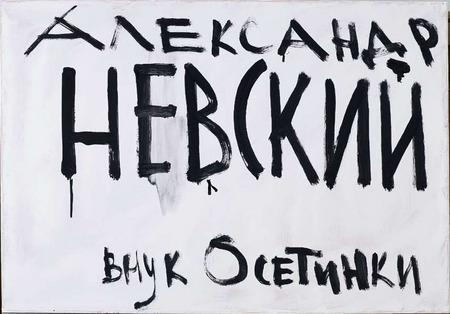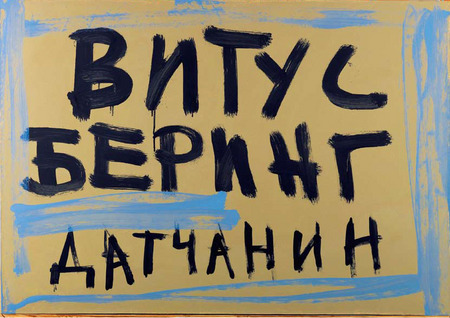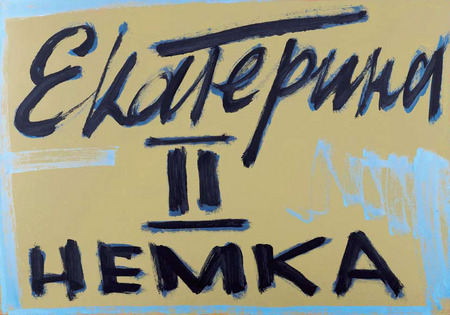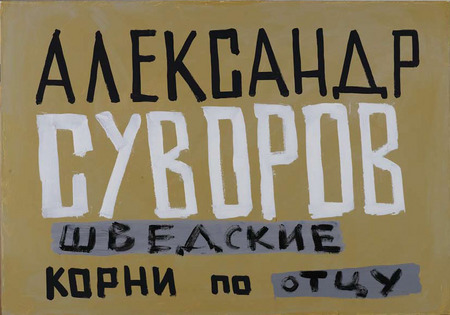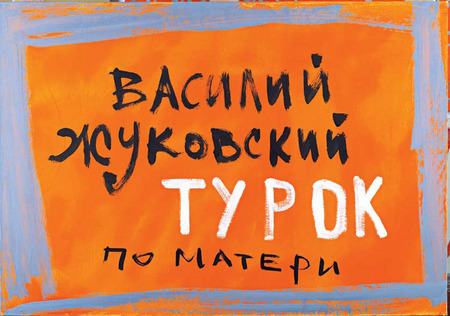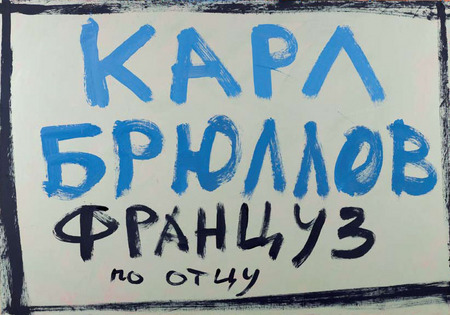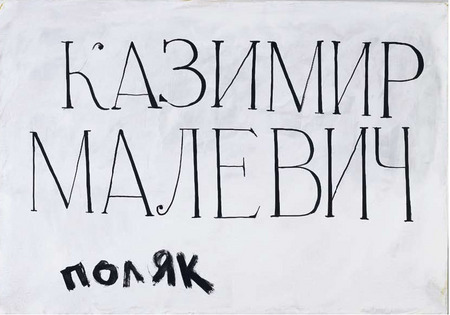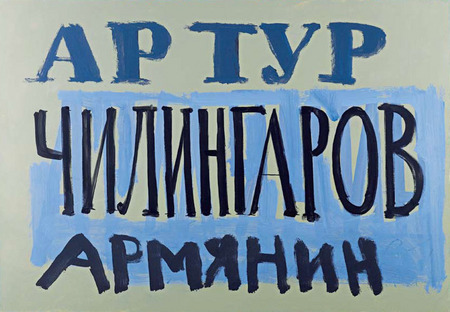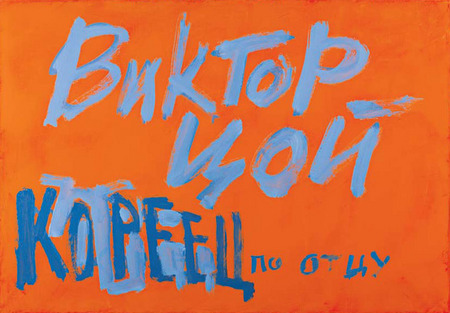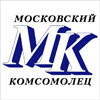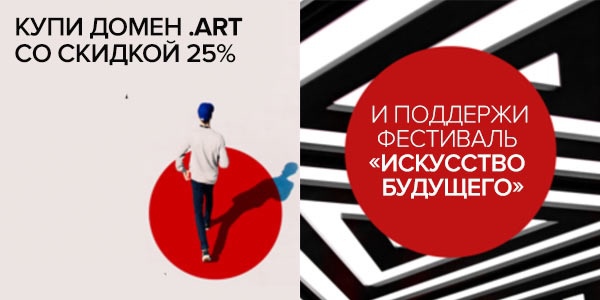Russia for all
Moscow, 3.11.2011—11.12.2011
exhibition is over
Share with friends
Project authors: Viktor Bondarenko and Dmitry Gutov
Project partners: Yeltsin Centre, Yegor Gaidar Foundation
For the press
“The “Russia For All” project is our response to all those who chant the slogan “Russia For Russians!” WE ARE NOT AGAINST anyone. WE ARE FOR Russia for all. We would like the supporters of “Russia For Russians” to stop and think if there will be any place in their Russia for the Holy Virgin Protectress of Russia, for Jesus Christ, Alexander Nevksy, Patriarch Alexy II, Maya Plisetskaya and Vladimir Vysotsky, or for the authors of songs like “Russian Field”, “Cranes” and “Day of Victory” – among them two Jews, an Avar and an Armenian?”
Viktor Bondarenko, concept author and project producer
“One day “internationalism” will be part of our everyday lives in the proper sense of the word.”
Dmitry Gutov, artist
Authors of the “Russia For All” project Viktor Bondarenko and artist Dmitry Gutov present their own view of the Russian 'national problem' with a rethink of Russian history and civilisation, concentrating on portraits of eighty important figures that changed the course of Russian history at different times. These include Andrei Bogolyubsky – whose mother was a Cuman, Pushkin – whose great-grandfather was a black African, Alexander Nevksy – grandson of an Ossetian woman, Pyotr Tchaikovsky – grandson of a Frenchman, Konstantin Tsiolkovsky – his father was Polish and mother Tatar, Viktor Tsoi – whose father was Korean, and Isaak Dunayevsky – who was Jewish.
The picture-texts, names and factual evidence of ethnic origin are indisputable and laconic, but in the context of Russia today this dry statement of fact has a paradoxical effect: the indication of origin is perceived as a label of indictment. This is no word game – all the words in the project are straightforward in meaning, but rather a playful twist on the thinking of ordinary Russians who cannot accept words like “Jew”, “Chukchi”, “Pole” and “Georgian” with neutrality.
The “Russia For All” art project was first shown to the public on June 11, the eve of Russia Day, at TverCA, the Tver Contemporary Art Centre.
At the beginning of August the exhibition was displayed at the Perm Museum of Contemporary Art. As part of the Pilorama-2011 international civil forum devoted to events of the late 1980s and early 1990s – “Twenty Years Later”, at the Perm-36 Museum of Political Repression – there was a round table entitled “What are “we – the multinational people of the Russian Federation” today?” As well as the authors of the project participators included Marat Gelman, Irina Yasina, Lyudmila Ulitskaya, Vladimir Lukin, Ella Panfilova and representatives of ethnic groups living in the Perm region.
On August 25 the “Russia For All” project was presented at the State Contemporary Art Centre in Nizhny Novgorod, and in September at the Russian Museum in St.Petersburg.
Among numerous visitors to the “Russia For All” exhibitions in Tver, Perm and Nizhny Novgorod there were prominent figures in social and cultural affairs such as Lyudmila Alexeyevna, Maria Arbatova, Roman Bagdasarov, Alexandra Buratayeva, Marat Gelman, Iosif Kobzon, Yuri Korablin, Maria Naimushina, Alexander Pochinok, Olga Romanova, Svetlana Sorokina, Lyudmila Ulitskaya, Yevgeny Yasin, Irina Yasina and Kirill Yashenkov.
The exhibition opening in Moscow is timed to coincide with National Unity Day on November 4. The authors of the “Russia For All” project want to give the public holiday a new significance appropriate to its name, so this day may truly unite the multinational people of Russia.
The project is supported by:
Alexander Avdeyev, Liana Agababyan, Lyudmila Alexeyevna, Roman Bagdasarov, Leo Bokeria, Viktor Bondarenko, Irina Builova, Alexandra Buratayeva, Tatyana Voskovskaya, Valery Gazzayev, Marat Gelman, Larisa Guzeyeva, Dmitry Gutov, Alexander Drozdov, Iosif Kobzon, Yuri Korablin, Arseny Meshcheryakov, Mikhail Mindlin, Maria Naimushina, Stanislav Nikolayev, Alexander Pochinok, Olga Romanova, Annetes Rudman, Aidan Salakhova, Svetlana Sorokina, Lyudmila Ulitskaya, Nikolai Uskov, Vasily Tsereteli, Vitaly Chaban, Yevgeny Yasin, Irina Yasina, Kirill Yashenkov
Constitution of the Russian Federation
We, the multinational people of the Russian Federation, united by a common fate in our land, establishing human rights and freedoms, civil peace and accord, preserving the historically established unity of the state, proceeding from the universally recognised principles of equality and self-determination of peoples, revering the memory of ancestors who have conveyed to us love and respect of the Fatherland and belief in good and justice, reviving the sovereign statehood of Russia and asserting the firmness of its democratic basis, striving to ensure the well-being and prosperity of Russia, proceeding from the responsibility for our Fatherland before present and future generations, recognising ourselves as part of the world community, adopt the Constitution of the Russian Federation
Nationalism shows that a nation is weak rather than strong. In most cases it is weak nations that are blighted by nationalism.
Dmitry Likhachеv
That poor beggar who has nothing in the world of which he can be proud latches onto the last means of being proud, the nation to which he belongs.
Arthur Schopenhauer
Viktor Bondarenko, concept author and project producer
“One day “internationalism” will be part of our everyday lives in the proper sense of the word.”
Dmitry Gutov, artist
Authors of the “Russia For All” project Viktor Bondarenko and artist Dmitry Gutov present their own view of the Russian 'national problem' with a rethink of Russian history and civilisation, concentrating on portraits of eighty important figures that changed the course of Russian history at different times. These include Andrei Bogolyubsky – whose mother was a Cuman, Pushkin – whose great-grandfather was a black African, Alexander Nevksy – grandson of an Ossetian woman, Pyotr Tchaikovsky – grandson of a Frenchman, Konstantin Tsiolkovsky – his father was Polish and mother Tatar, Viktor Tsoi – whose father was Korean, and Isaak Dunayevsky – who was Jewish.
The picture-texts, names and factual evidence of ethnic origin are indisputable and laconic, but in the context of Russia today this dry statement of fact has a paradoxical effect: the indication of origin is perceived as a label of indictment. This is no word game – all the words in the project are straightforward in meaning, but rather a playful twist on the thinking of ordinary Russians who cannot accept words like “Jew”, “Chukchi”, “Pole” and “Georgian” with neutrality.
The “Russia For All” art project was first shown to the public on June 11, the eve of Russia Day, at TverCA, the Tver Contemporary Art Centre.
At the beginning of August the exhibition was displayed at the Perm Museum of Contemporary Art. As part of the Pilorama-2011 international civil forum devoted to events of the late 1980s and early 1990s – “Twenty Years Later”, at the Perm-36 Museum of Political Repression – there was a round table entitled “What are “we – the multinational people of the Russian Federation” today?” As well as the authors of the project participators included Marat Gelman, Irina Yasina, Lyudmila Ulitskaya, Vladimir Lukin, Ella Panfilova and representatives of ethnic groups living in the Perm region.
On August 25 the “Russia For All” project was presented at the State Contemporary Art Centre in Nizhny Novgorod, and in September at the Russian Museum in St.Petersburg.
Among numerous visitors to the “Russia For All” exhibitions in Tver, Perm and Nizhny Novgorod there were prominent figures in social and cultural affairs such as Lyudmila Alexeyevna, Maria Arbatova, Roman Bagdasarov, Alexandra Buratayeva, Marat Gelman, Iosif Kobzon, Yuri Korablin, Maria Naimushina, Alexander Pochinok, Olga Romanova, Svetlana Sorokina, Lyudmila Ulitskaya, Yevgeny Yasin, Irina Yasina and Kirill Yashenkov.
The exhibition opening in Moscow is timed to coincide with National Unity Day on November 4. The authors of the “Russia For All” project want to give the public holiday a new significance appropriate to its name, so this day may truly unite the multinational people of Russia.
The project is supported by:
Alexander Avdeyev, Liana Agababyan, Lyudmila Alexeyevna, Roman Bagdasarov, Leo Bokeria, Viktor Bondarenko, Irina Builova, Alexandra Buratayeva, Tatyana Voskovskaya, Valery Gazzayev, Marat Gelman, Larisa Guzeyeva, Dmitry Gutov, Alexander Drozdov, Iosif Kobzon, Yuri Korablin, Arseny Meshcheryakov, Mikhail Mindlin, Maria Naimushina, Stanislav Nikolayev, Alexander Pochinok, Olga Romanova, Annetes Rudman, Aidan Salakhova, Svetlana Sorokina, Lyudmila Ulitskaya, Nikolai Uskov, Vasily Tsereteli, Vitaly Chaban, Yevgeny Yasin, Irina Yasina, Kirill Yashenkov
Constitution of the Russian Federation
We, the multinational people of the Russian Federation, united by a common fate in our land, establishing human rights and freedoms, civil peace and accord, preserving the historically established unity of the state, proceeding from the universally recognised principles of equality and self-determination of peoples, revering the memory of ancestors who have conveyed to us love and respect of the Fatherland and belief in good and justice, reviving the sovereign statehood of Russia and asserting the firmness of its democratic basis, striving to ensure the well-being and prosperity of Russia, proceeding from the responsibility for our Fatherland before present and future generations, recognising ourselves as part of the world community, adopt the Constitution of the Russian Federation
Nationalism shows that a nation is weak rather than strong. In most cases it is weak nations that are blighted by nationalism.
Dmitry Likhachеv
That poor beggar who has nothing in the world of which he can be proud latches onto the last means of being proud, the nation to which he belongs.
Arthur Schopenhauer

